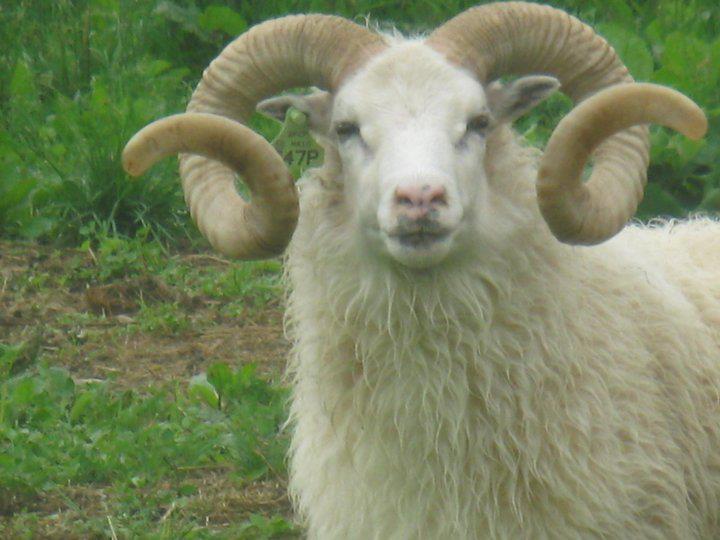
Story and images by Fibershed intern Charlotte Atkinson
The magic of slow living is truly embodied by shepherdess Dorothy Benedict of Pan Terra Farm in Central Massachusetts. Dorothy has always considered herself a country person and lives a simplistic yet fulfilling lifestyle, sharing a deep connection with the animals and plants that live on her land. The property has a flock of 19 animals, mostly consisting of icelandic sheep, two shetlands, one goat and a donkey. There is always a surplus of multi colored eggs from the chickens that roam freely, and three years ago bees were introduced to the landscape. The bees play a very important role in the farm’s ecosystem, and have greatly improved the clover hey crop for the animals.
Dorothy lets the hard working bees have their honey during the winter, and uses what’s left over in the spring. For herself, beekeeping has been one of the most rewarding pursuits.
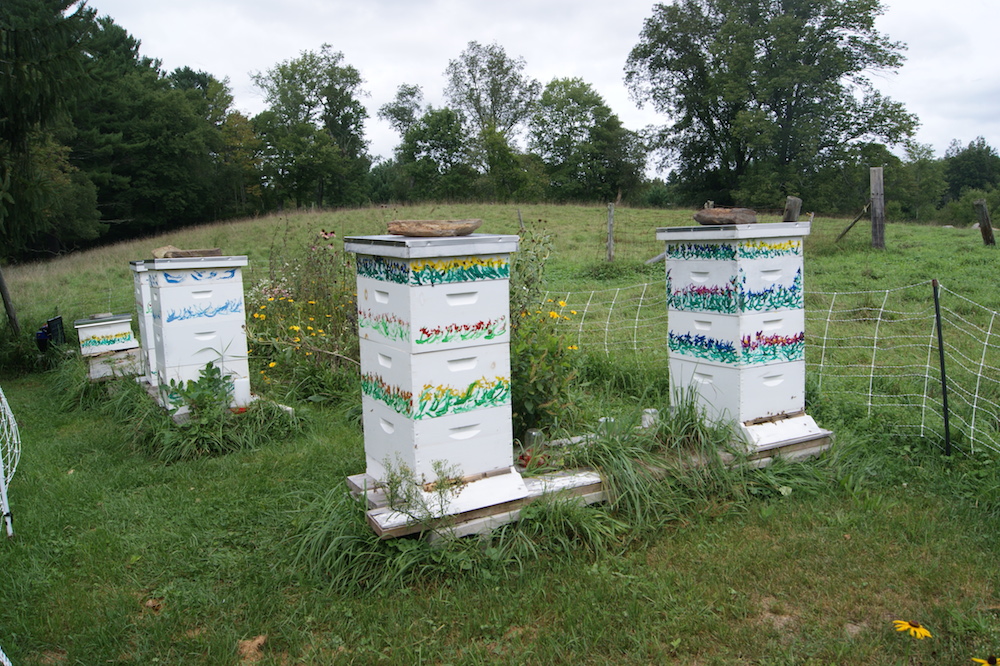
Around thirty years ago she became interested in starting a goat dairy, and bought the property for that reason. She began making cheese on the property, and as her business grew, her herd expanded to 200 goats, with about 110 milking at a given time. Milking is an extremely labor intensive process, and at a certain point the stress became so much that she was getting bronchitis every year. It was a sign that something needed to change, and coincidentally the answer to her dilemma came when a friend offered to buy the goat dairy. Dorothy knew she wanted animals that produced something other than milk, and fell in love with the unique characteristics of the Icelandic sheep breed. It was a bonus to her that sheep’s wool didn’t have an expiration date, and the thought of weaving with their fiber excited her as she was already an artist who worked with pastels.
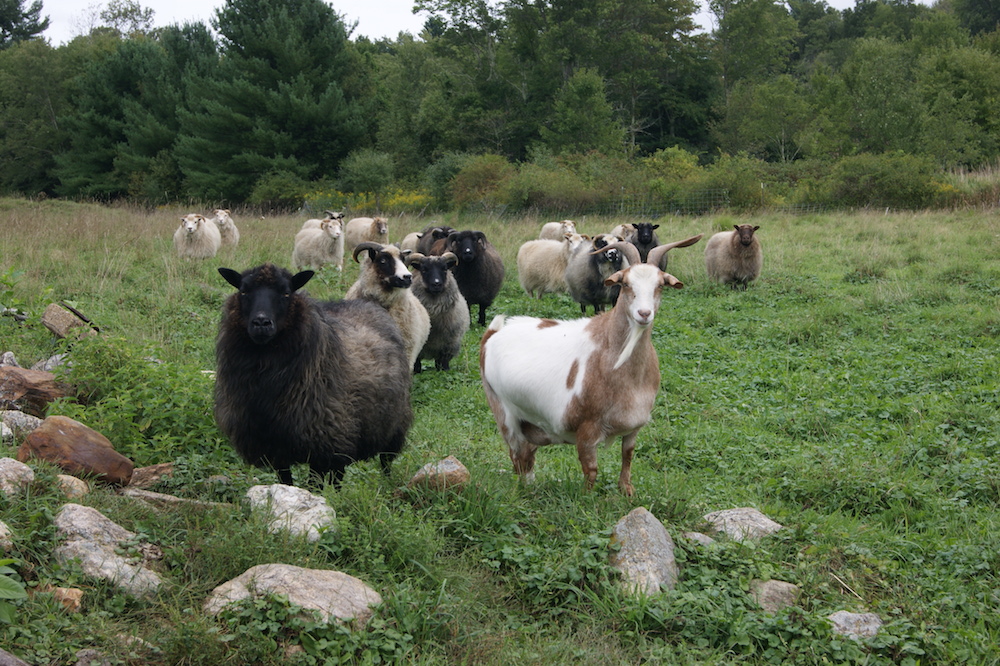
“The reason why I got the Icelandics was because I was just so blown away by how beautiful they were, and how different the colors were from other sheep. There were some practical reasons too, as they don’t eat grain very much at all, and just get grain as a treat. They are born with short tails which means I don’t have to dock their tails like you do with most sheep, so that makes me feel better.”
The benefits of having Icelandics for Dorothy made a lot of sense, as they are much smaller than most sheep breeds, which makes it a whole lot easier for a single woman like herself to handle. They are also very easy and independent when it comes to lambing, as they do pasture lambing and don’t need assistance when giving birth in the field. The history of the breed is also very interesting, as they were brought to Iceland when the vikings settled between 870 and 930 CE. After this point the importation of sheep had been made illegal, and the breed developed its characteristics isolated from other types of sheep. Having a specialty type of fiber was an added benefit for Dorothy, and the unique characteristics of the breed’s double coated fiber made it a stand alone commodity that didn’t compete against other wool products.
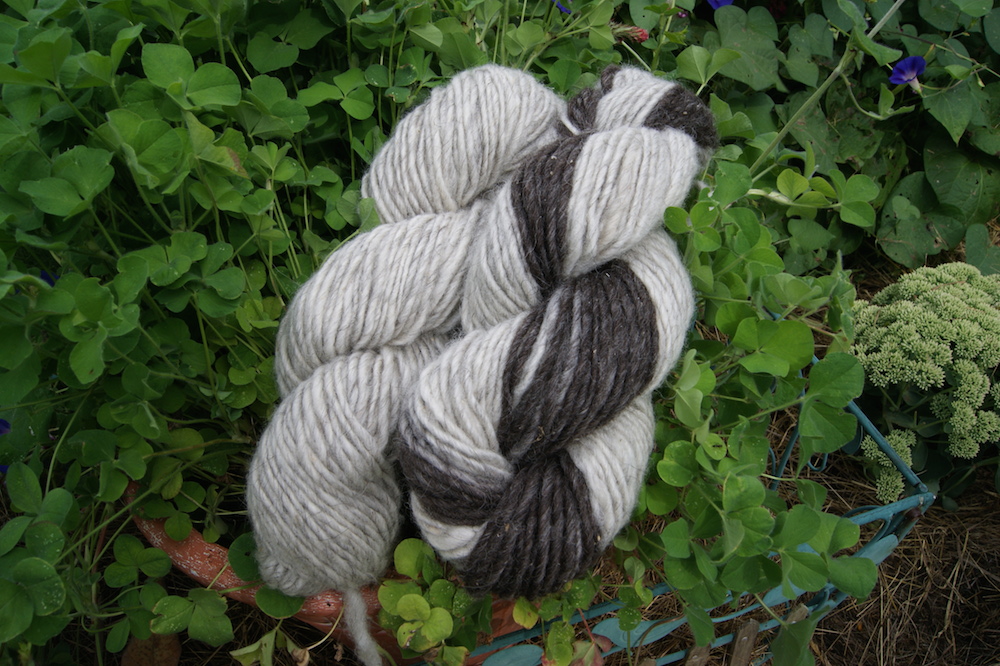
Since there aren’t any local mills that know how to handle and spin the specialty fiber, Dorothy has her fiber processed by two different mills, Morning Star Fiber in North Carolina and Round Barn Fiber Mill in Indiana, for worsted yarn. Some of the fiber that she feels isn’t good enough to send to the mill, she keeps at home to process herself and make weavings with. She first scours (washes) the fleece in an inflatable pool, and dries it on her skirting table. Next she uses hand carders as well as a drum carder to prepare the fiber for hand spinning. In her eyes she isn’t the most consistent spinner, but likes the bumpy texture of her yarn as it gives dimension to her weavings. She prefers to spin her yarn in the traditional way that Icelandic was once processed, by using the Lopi method. After the skeins are spun, she goes outside and finds plants on her property to dye with. Nettle, sumac, marigolds, and goldenrod are her go-to colors, yet she also works with Japanese Indigo. With her weavings she uses a traditional handmade Navajo loom, which stands up vertically as opposed to the other types of looms that lay flat.
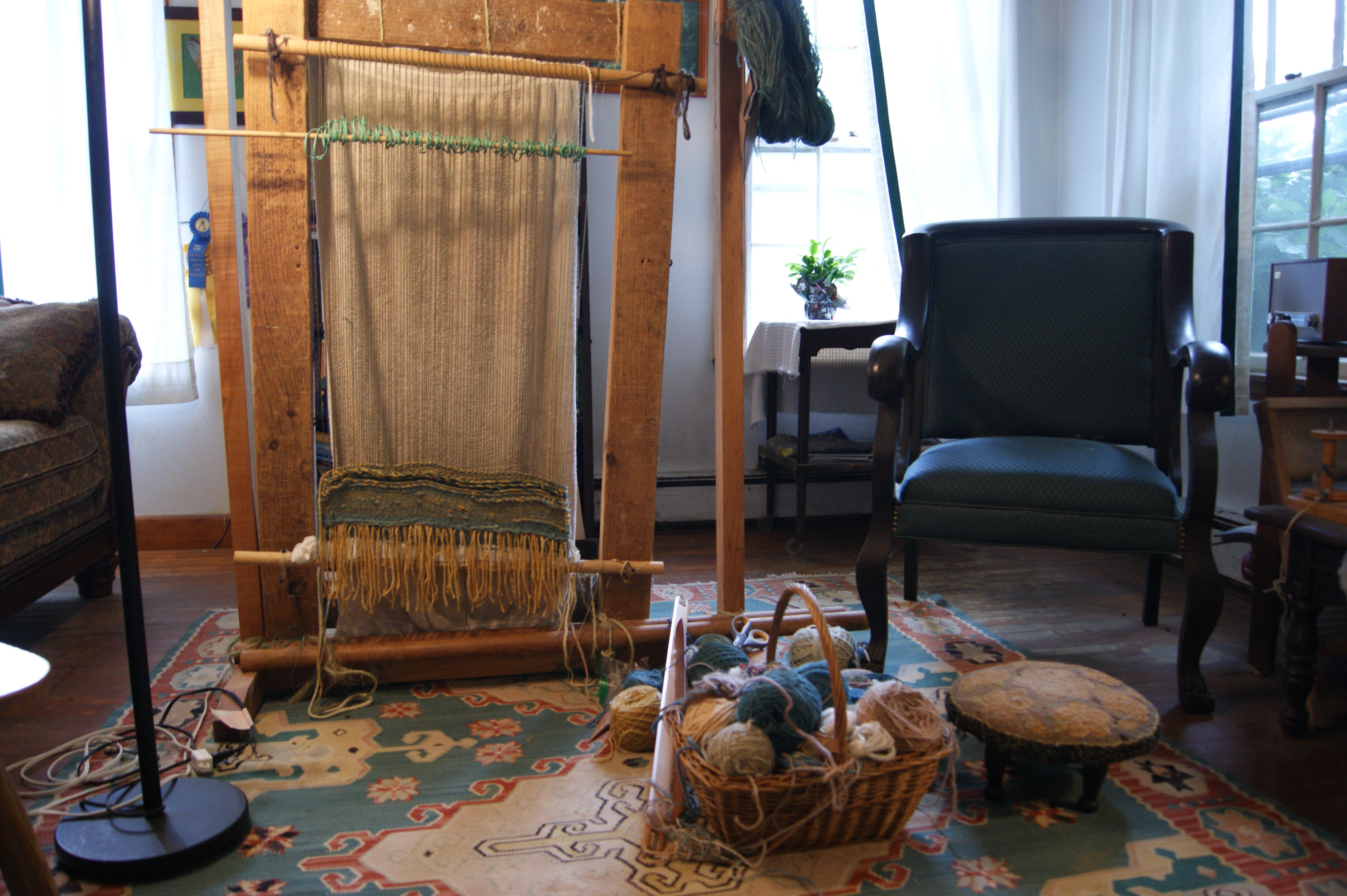
“At one point when I first moved here, I was really sick and tired of goldenrod. This was before I ever had any inclination to dye with it, and I tried to pull out every single goldenrod plant, and it was such a failure because it came back stronger! Right now I’m just lucky and happy that I failed!”
On the consumer level, she enjoys the direct relationships shared with customers as they often give her new ideas of what she can do better. She sells her products at local yarn events, farmers markets, and fiber art shows, yet her biggest customer is New England Farm to Fiber at the Boston Public Market. She met the founder Genevieve Day, who is also the owner of JP Knit & Stitch in Jamaica Plain, and started talking about the possibility of starting a locally farmed yarn outlet in Boston. They worked out a wholesale price for Dorothy to sell her yarn at, and since then Genevieve has been her biggest customer.
“The thing that I like about the shop is the fact that it’s dedicated to the shepherds and the shepherdesses who own the animals. It’s breed specific in many instances, there are people there who have different breeds of sheep and blend their fibers together, but then there are people like me who only have one or two breeds of sheep, and the yarn is specific to that breed. It took Genevieve a while to find the right place and to actually put it in her mind that she wanted to do this and I think she’s done quite well there, she’s had a lot of special events, and I always sell her a lot of wool.”
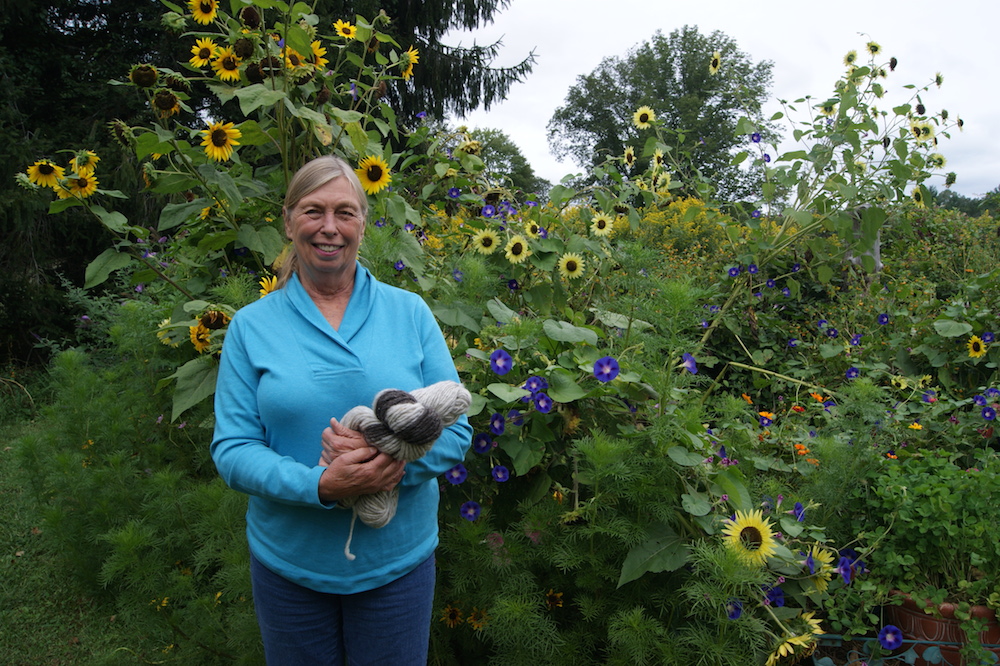
When asked what the biggest challenge for a modern day sheep farmer is, she points out that most farmers have difficulty developing a market for their products. Dorothy fortunately has had experience in this area, yet at the same time has found it difficult to maintain a website due to the amount of work it takes. She does better face to face with people, and likes to do business on her Facebook page where there are a lot of fiber related groups. Some would argue that farming sheep for meat is a more sustainable income in the long run, but she says that it really just depends on what the farmer wants to do.
I asked her how the Producer Directory that we are building can be used to help farmers like herself, and she mentioned that any sort of name recognition is a huge help for her. The farm has been a part of other databases before, and it has been a success as people have since found her and visited the farm to purchase her goods. She agrees that there has been a resurgence of interest in locally grown fiber, and says that it goes along hand in hand with the organic food movement. Pointing out that you don’t have to be certified organic to raise animals to that same standard, you can advertise the animals as being fed organic grain and there is a big interest in that.
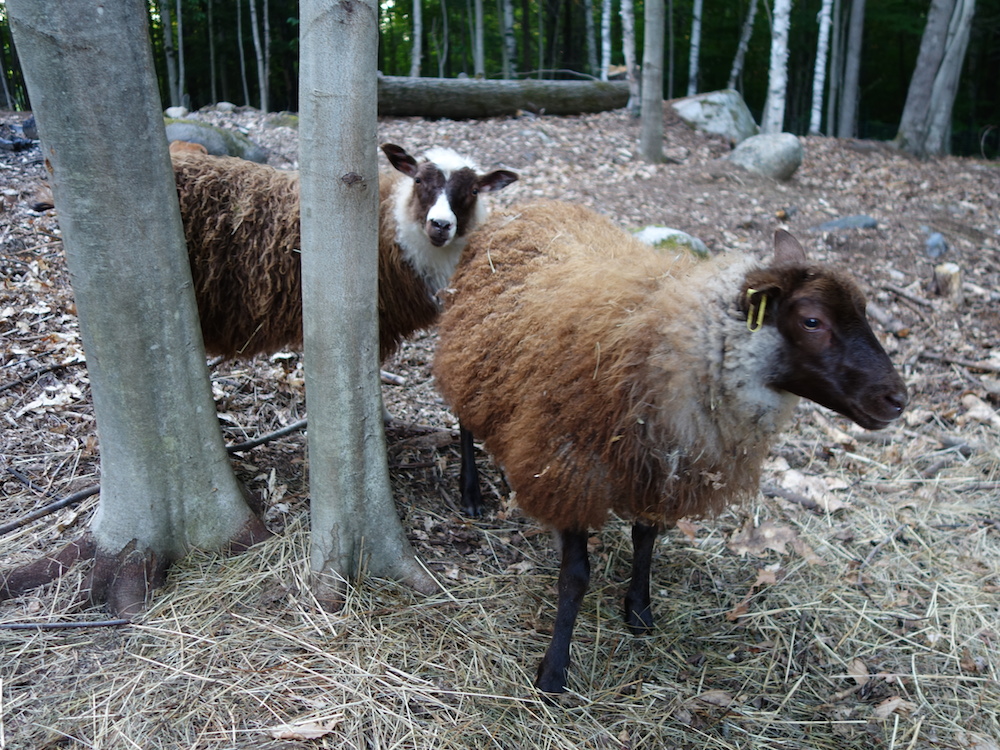
Dorothy says that a deep appreciation for nature is essential for people to truly value the process of fiber production, and the amount of work that it takes.
“I think it sort of goes along with the whole need for people to appreciate nature more and what goes into making a product, because in most cases people have no idea what goes into making a sweater, or making anything really. But when people come to see a product like mine they ask why does this cost so much? And I’ll say well, it’s because of all the work I had to put into it. I have to raise the animals, do the processing and people need to understand that. In the past people didn’t throw their clothes away, they mended and re-dyed them to bring back the color.”
In today’s world there seems to be a big disconnect about how our clothes are made, and the ways in which textile manufacturing impacts our natural world. But sometimes, when we’re offered the chance to see how things are made in nature, starting with the animals that created the fiber, we start to get it. That there are people like Dorothy that genuinely love what they do and creatively express it, makes connecting the dots all that much easier.
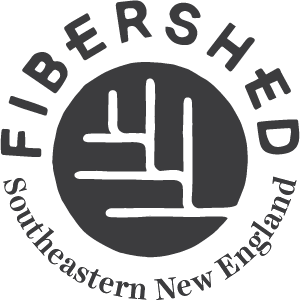
Fantastic article very informative